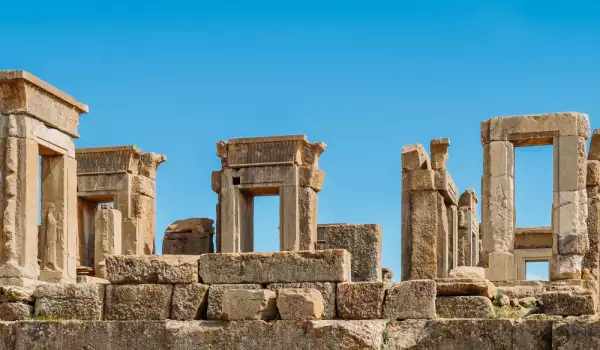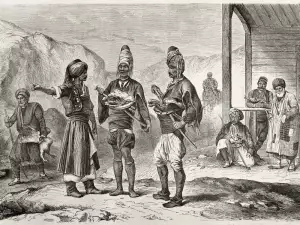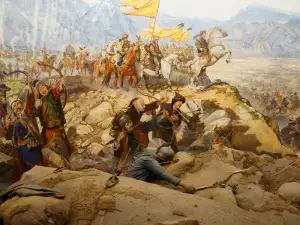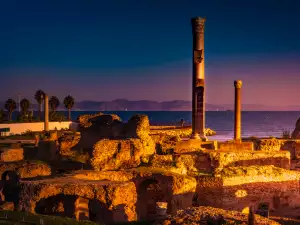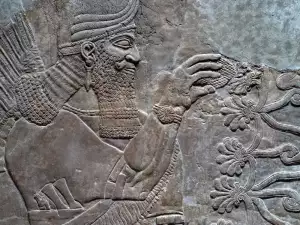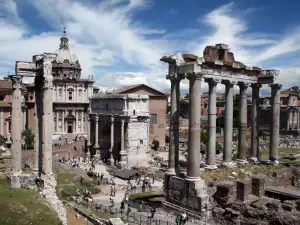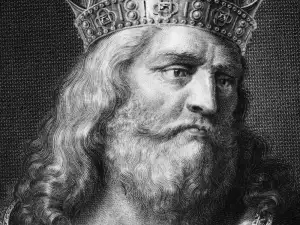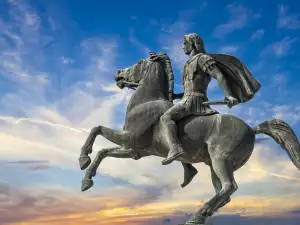Of all the empires that have arisen and flourished on the face of this earth, what are the five greatest? How is it even possible to pick five out of the hundreds that have flourished over the past five thousand years? The truth is that any wording will be subjective, because all empires are glorious and influential in their own way.
However, there are some empires that are so powerful and great, and have had such a great impact on human development, that they deserve to be called the greatest, regardless of the criteria.
The Persian Empire
The Achaemenid Persian Empire was founded by Cyrus the Great around 550 BC. He bore the title King of Kings (Shahanshah). Although the Persian Empire disappeared from history with an inglorious end, destroyed in just a few years by Alexander the Great in 330 BC, it left a lasting legacy on the subsequent development of world civilizations and future empires. In fact, the Persian Empire is key because it was the first true empire to set the standard for what the term meant.
The Persian Empire existed at a unique time in history when most of the civilized inhabited world was concentrated in or near the Middle East. As a result, the Persian Empire, dominating most of the Middle East, ruled a greater percentage of the world's population than any other empire in history.
In 480 BC, the Persian Empire had a population of approximately 49.4 million people, which was 44 percent of the world population at the time. It was the first empire to connect multiple world regions - the Middle East, North Africa, Central Asia, India, Europe and the Mediterranean world. It is thanks to it that the concept of empires was created in places like Greece and India.
Such a large empire could only have been created by incredible military might, and indeed its military achievements were considerable, though often forgotten because of its sudden demise by Alexander's armies. Various Persian campaigns succeeded in subduing most of the world's advanced civilizations at the time, including the Babylonians, Lydians, Egyptians and the northwestern Hindu region of Gandara, in present-day Pakistan.
It must not be forgotten that, regardless of exaggeration and misinterpretation, the Persians believed that they had achieved their goals in Greece and that there were more Greeks living in the empire than outside it. The Persian Empire ushered in a period of harmony and peace in the Middle East for two hundred years, a feat rarely repeated even today.
The legacy of the Persian Empire to the world in terms of imperial ideas included the use of a network of roads, a postal system, a single language of administration (Imperial Aramaic), autonomy for different ethnicities and bureaucracy. The Persian religion, Zoroastrianism, influenced the development of key concepts such as free will and heaven and hell in the Abrahamic religions through Judaism.
The Roman Empire
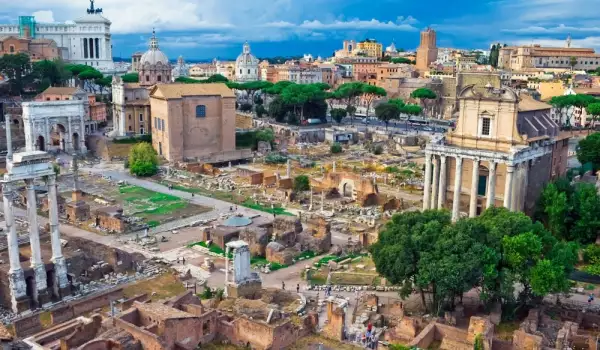
The Roman Empire is the ideal of empire for the Western world. But its importance is not a product of Western bias: the Roman Empire was indeed one of the largest in history. The Romans demonstrated the great ability to conquer and hold large territories for hundreds or even thousands of years if one counts the Eastern Roman Empire (Byzantine Empire). These lands were not held by brute force alone. Once conquered, the people sought to become Roman, which meant participating in a sophisticated, urban, classical culture.
Several important features of the modern world resulted from the Roman Empire. The Romans absorbed and expanded Hellenistic (Greek) culture, passing on Greek architecture, philosophy and science to future generations. Later, the Roman embrace of Christianity helped elevate that religion from a minor cult to one of the great world religions.
Roman law influenced all subsequent legal systems in the West and Roman institutions inspired the governance systems of modern democracies.
The Roman legions were militarily dominant for centuries, allowing Rome to rule almost all other civilized nations in the Mediterranean and Middle East. When the empire collapsed, it was more due to ongoing crisis and civil war than invasion by Germanic tribes. And the Eastern Empire lasted until AD 1453, giving the political history of the Roman state a whopping two millennia.
The Arab Caliphate
The Arab Empire, also known as the Caliphate, was a political entity founded by the Muslim Prophet Muhammad that encompassed most of Arabia at the time of his death in 632 AD. It is more reasonable to be called the Arab Empire and not the Muslim Empire, because while Islam arose and spread because of this empire, there were many subsequent and empires that are legitimately Muslim or ruled by Muslims but are not Arab.
Muhammad was succeeded by the four rightly-ruled caliphs ("successors") who were chosen by consensus and acclimatization (albeit uncontested) until 661 CE. The Umayyad hereditary caliphate ruled until 750 AD, followed by the Abbasid caliphate, though the conquests had ended by then.
The Arab Empire effectively ended around 900 AD, although the Abbasids retained their religious role as caliph figures in Baghdad, until the destruction of that city by the Mongols in 1258 AD.
For its time, the Arab Empire was exceptional both for its military successes and its heritage. Amazingly, a loosely organized tribal people on the fringes of world civilization defeated the Byzantine Empire and destroyed the Sassanid Persian Empire, whose population and resource bases exceeded those of the Arabian Desert.
The Arab conquests are a good example of how ideological jealousy can sometimes compensate for technological and organizational shortcomings and the Arab generals of this period deserve to be ranked among the world's greatest military geniuses, especially the third caliph Omar, who conquered the region from Egypt to Persia in only ten years. In a hundred years, the Arab Empire became several times the size of the Roman Empire in its heyday.
Because of its location, the Arab Empire, like the Persian Empire before it, connected the other centers of world civilization in Africa, Europe, Central Asia, India and China. As a result, goods and knowledge from all these regions managed to mix, giving a powerful impetus to the development of science.
The ultimate legacy of the Arab empire is, of course, the religion of Islam, followed by more than a billion people today.
The Mongol Empire
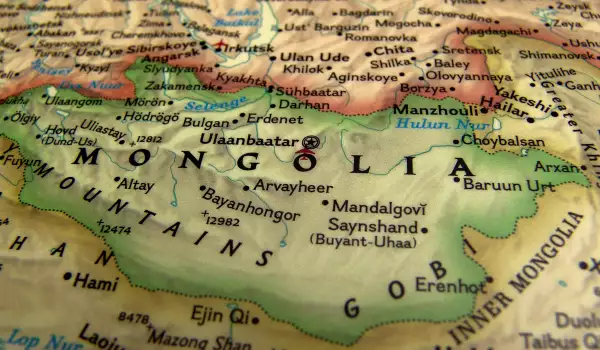
The Mongol Empire was another empire that came from the periphery and defeated much more powerful and populous enemies. It is the greatest land empire in the world that strikes terror into all its enemies. Founded by the Mongol warlord Temujin, who assumed the title Genghis Khan in 1206 AD, the Mongol Empire initially grew by wresting parts of China, like many previous steppe tribes.
But the defining moment for the Mongol Empire was when its ambassadors were killed by leaders of the neighboring Khorezm Empire, which at the time encompassed present-day Iran and Afghanistan and Central Asia.
This was taken as a grave affront by the Great Khan and the ensuing Mongol retaliation completely devastated Central Asia, killing more than 70% of the population of this vast region and ending its Golden Age. Combined with the subsequent establishment of European sea routes that bypassed the Silk Road, the Mongol invasions spelled the demise of Central Asia as an important region.
Although there are only about two million Mongols in the entire world, they conquered most of the Middle East, Russia and China under Genghis Khan's descendants. During their heyday they suffered only a few setbacks, such as their failed invasion of Japan and the Battle of Ain Jalut in 1260 against the Mamluks of Egypt.
How did the Mongols manage to accomplish these feats? Despite their small population, they lead large and mobile armies against their enemies, because they bring their herds with them and can feed themselves. In the era before the rapid development of transportation, no other country could move a large army over long distances.
The British Empire
The British essentially made the modern world. British institutions of representative democracy inspired French Enlightenment philosophers such as Montesquieu to develop theories of modern government that influenced other modern European states.
The core characteristics of the United States-a commitment to liberalism, the rule of law, civil rights and commerce-were inherited from the British and spread throughout the world. Most of these features developed organically over England's long history rather than being the result of any master plan.
These characteristics also helped the British Empire grow, prosper and hold onto the territories it controlled. At its peak in the early 20th century, the British Empire spanned almost a quarter of the world – the largest of all empires in history. This feat was made possible by England's organizational feats and financial capabilities rather than by a huge army.
For example, the British conquest of India was mostly done by Indian troops in British pay who chose to serve the British, because of the regular salaries and benefits offered by them. London also demonstrated a remarkable ability to fight multiple wars simultaneously. While they sometimes lost battles, the British rarely lost wars.
